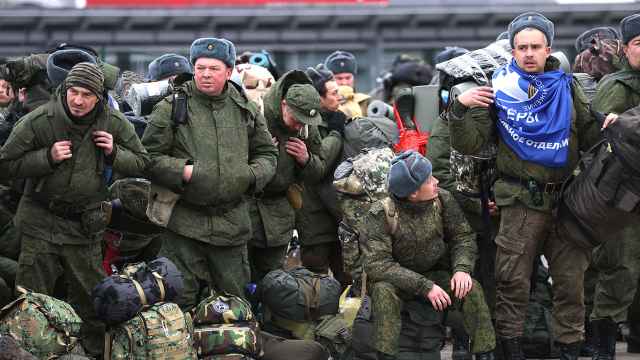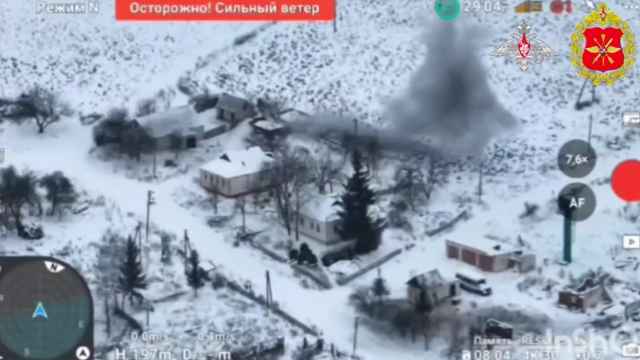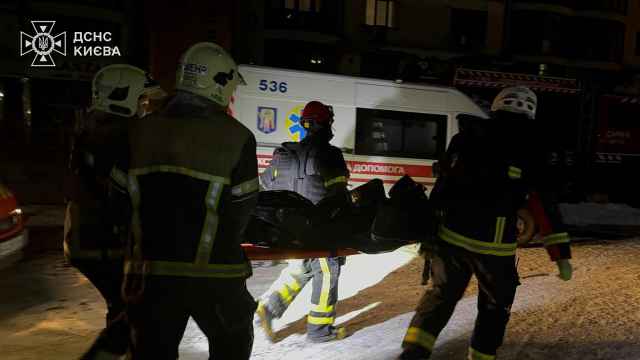More than a third of the country's most powerful police chiefs have been fired after they failed mandatory re-evaluations as part of an ongoing police reform.
The dismissals send a signal that even corrupt senior police officials, whose continued tenures apparently gave their superiors additional leverage over them, will not be immune to a wave of looming job cuts in the country's police force.
A total of 119 of Russia's 335 most powerful police chiefs had been dismissed as of May 20, Interior Minister Rashid Nurgaliyev told Militseyskaya Volna radio last week.
Nurgaliyev did not elaborate on why the police chiefs had failed the re-evaluations. But earlier this month, reporting the progress of the police reform to the State Duma, he said some dismissals were connected to "serious problems," including ownership of real estate abroad.
Both in the interview and before the Duma, Nurgaliyev did not identify the dismissed officials and did not say whether criminal cases had been opened against them.
But he told the Duma that some of the officials had held their posts for five to 10 years.
It was unclear why previous re-evaluations had failed to uncover problems with the dismissed officials. Police chiefs are required to undergo re-evaluations every five years that include performance reviews by their immediate superiors, according to an Interior Ministry document issued in 1999. Those aiming to get the rank of general face additional scrutiny from the Federal Security Service and the Interior Ministry's internal security department, which gauges whether candidates for senior police positions might have engaged in corrupt practices but does not prosecute offenders.
Reached by phone, an Interior Ministry spokesman refused to comment on the dismissals.
Mikhail Pashkin, who leads a Moscow police trade union, said the Interior Ministry's leadership must have known about acts of corruption committed by the dismissed police officials but used this knowledge to keep them in line.
"It is very beneficial to retain these kinds of subordinates — they do as they are told for fear that their transgressions will be brought into the light," said Pashkin, who heads the Moscow Professional Union of Police Officers.
Most of the dismissed police chiefs held the rank generals, which means the FSB and Interior Ministry's internal security department examined their activities before they received the titles, Pashkin said. He said the dismissals probably were linked to looming spending constraints more than corruption.
Finance Minister Alexei Kudrin last week proposed cutting spending at the Interior Ministry by almost 3 billion rubles ($105.3 million) over the next three years. He did not specify the current size of the budget, but said earlier that federal authorities would allocate 216.8 billion rubles ($7.7 billion) for police reform alone in 2012 and 2013.
The dismissals dovetail with an initiative by the police reform to shave 200,000 jobs from the country's 1.2 million-member police force.
The entire police force has to take the re-evaluations by August.
The re-evaluation commission includes officials from the FSB, the Prosecutor General's Office and the Federal Financial Monitoring Service. The commission weighs feedback from each police employee's boss and colleagues, as well as public opinion formed during the police meetings with citizens introduced by the new police law in March.
A total of 329 of 335 police chiefs, including the 119 who were dismissed, have undergone re-evaluation as of May 20, Nurgaliyev said last week. In addition, 170 of the 335 police chiefs have been appointed to various positions, Nurgaliyev said, without elaborating on the fate of the other 38 police chiefs.
A Message from The Moscow Times:
Dear readers,
We are facing unprecedented challenges. Russia's Prosecutor General's Office has designated The Moscow Times as an "undesirable" organization, criminalizing our work and putting our staff at risk of prosecution. This follows our earlier unjust labeling as a "foreign agent."
These actions are direct attempts to silence independent journalism in Russia. The authorities claim our work "discredits the decisions of the Russian leadership." We see things differently: we strive to provide accurate, unbiased reporting on Russia.
We, the journalists of The Moscow Times, refuse to be silenced. But to continue our work, we need your help.
Your support, no matter how small, makes a world of difference. If you can, please support us monthly starting from just $2. It's quick to set up, and every contribution makes a significant impact.
By supporting The Moscow Times, you're defending open, independent journalism in the face of repression. Thank you for standing with us.
Remind me later.





